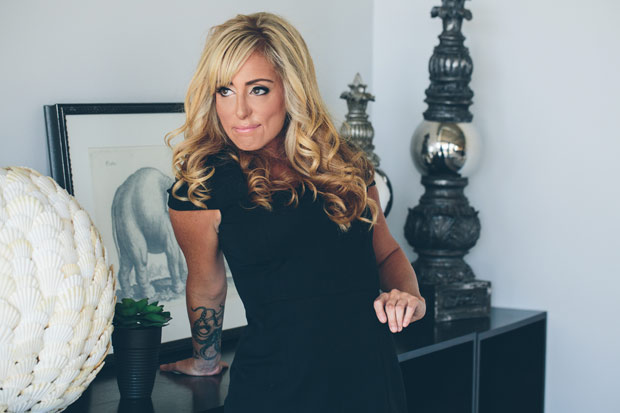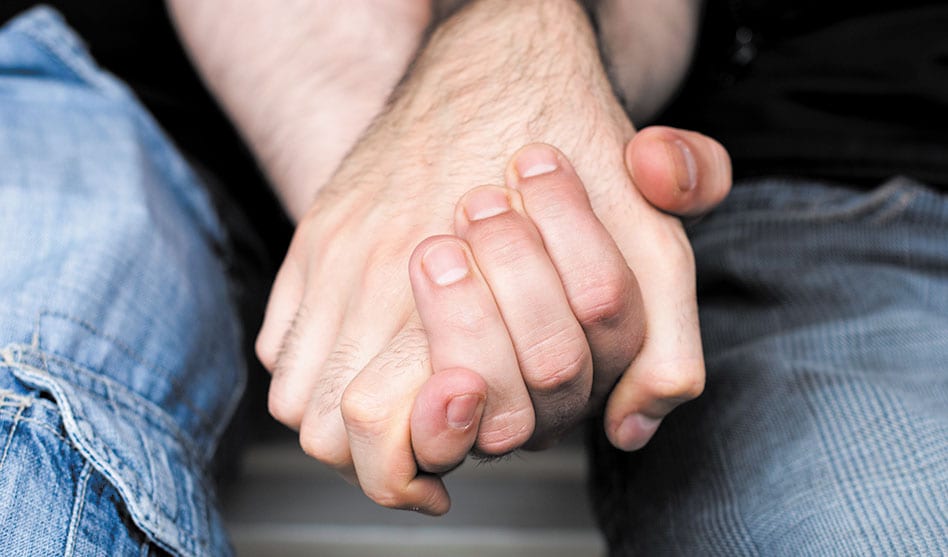Jenny Block wonders: Do labels mean anything, and if so, what?

Gender queer. Butch. Stone butch. Femme. High femme. Andro. Boi. Lesbian. Bi. Gay. Trans.
Labels. I love them and I hate them. I love them because they allow me to self-identify. They allow me to speak to who I am and to find other people who identify the same way. They give me — us — a means to connect and pathways to community.
But I hate them because they cause derision, and that is the last thing on earth we need. It’s the alphabet soup problem: LGBTQI. I get it. Everyone deserves a place on the bill. But it can also get extreme and out-of-hand. Why not just settle on queer? Everyone who doesn’t choose to identify as straight, come on down!
But do that and we’re all one lump. And sometimes, a girl needs to rally her own troops to get the support she really needs. Yes, when it comes right down to it, I believe that all of my lesbian sisters let alone all of my queer mates have my back. But when I have a problem of the girly persuasion, it’s my fellow high femmes who I want to hear my cry.
Problem is, I’m not always high femme. I mean, I am. But I’m not. I do wear cupcake dresses and insanely high heels. I do prefer that my girlfriend drive and order the wine and open the door for me.
But I also am the bug-killer and the travel-arranger and the logic-maker. I drive a Wrangler. My keys are on a carabineer. And you will find Converse, Levi’s, wing tips and blazers in my closet.
So, am I a femme or a high femme or fair weather andro? I have long hair. If I cut it, does that change everything? If I date someone more femme than I, then do I become less femme? How do the labels serve me at that point?
All of that, of course, is solely my internal struggle. Then there’s the external issue — how I fit into the world, how the world sees me… the straight one and the gay one. They want to know who I am. They want me to identify. They want to know what I am so they know which box to put me in and how to relate to me. They want to know who I want to be, who I think I am.
Some of them want that in order to be respectful and others want to know in order to persecute and discriminate. And therein lies the problem. Or the additional problem in this case. When we start labeling people, we start limiting people. We start forcing them into tiny boxes and even tinier definitions forcing them to question or deny certain parts of themselves.
If I have to choose one category, what do I do with the rest of me that fits in other places? And choosing somehow invites hating. And not just from outside of the lesbian world or the queer world — also from within. I can’t tell you how many times my long hair or short skirts have caused a lesbian to dismiss me for being not gay enough. Not gay enough. Please. I love pussy. That’s more than enough.
So where does this leave us?
The answer is as simple as it is complicated. We use labels when they are meaningful to us, when they bring us together, when they break down the barriers that divide us. We reject them when they create divides, tear us down, rip us apart both personally and as a group.
It’s tough out there no matter who you are and tougher for some more than others. So we have to be kind – to ourselves and to one another. Label yourself as you like. Or not. And respect the labels that others choose for themselves, whatever they may be. Labels should be salves not swords.
Jenny Block is the author of the new book O Wow! Discovering Your Ultimate Orgasm.
Have a question about sex you want Jenny to address? Email it to GirlOnGirlsJenny@gmail.com.
This article appeared in the Dallas Voice print edition November 20, 2015.










